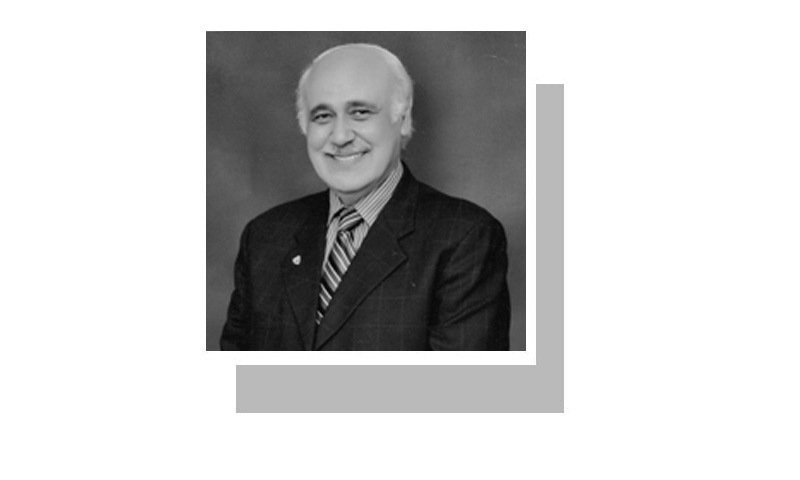WORLD War II ended in 1945 when the western Allies accepted the surrender of Germany and Japan. World War III began immediately thereafter. Known euphemistically as the Cold War, it was nevertheless an undeclared war between Western democracies and the communist bloc.
In 1945, even before hostilities ended, the Allies and the Soviet Union had made plans on the reparations they would demand from Germany, Japan and Italy for their costly folly. Italy came off lightly with reparations of less than $300 million. Japan had to pay $24 billion in cash and forfeiture of its overseas assets. Germany — the prime protagonist — bore the stiffest penalty: $23bn in machinery and manufacturing plants, and another $10bn in ‘intellectual reparations’. Under this head, the US justified abducting 88 German scientists and with them the know-how to accelerate its own space and atomic programmes. A precious asset proved to be Dr Wernher von Braun, who later worked on the Apollo 11 space mission.
Despite the efficiency of Allied intelligence about scientific research within Nazi Germany, American officials were startled to discover after entering Germany, that Hitler had authorised the development of nerve agents as weapons, including a method by which the bubonic plague could be used lethally.
The US has not lost its appetite for demanding reparations. That might explain why President Trump has suggested that China should pay compensation to nations affected by the Covid-19 virus. He accuses China of allowing the coronavirus to escape (or to be released) from a laboratory in Wuhan. Various ideas have been ventilated within Trump’s administration on how to punish China. These include the imposition of punitive tariffs on imports from China, financial strictures, even the extreme measure of stripping the People’s Republic of China of its sovereign immunity as a state.
The US has not lost its appetite for demanding reparations.
The Chinese government which prefers to trade goods, not insults, responded at the level of an executive vice foreign minister, Mr Le Yucheng. In an interview, he accused the US of “blackmail”, brushed off its claims as “preposterous”, and mocked US strategy as a “political farce”. Separately, a Chinese diplomat official based in an African state, retaliated with the suggestion — a pointed one, considering his audience — that the US might like first to calculate the compensation it owes to the peoples of Africa for the slave trade and for mineral exploitation.
This is not the first time such a demand has been made. Since the abolition of slavery in the US in the 1860s, WASPish governments have made countless half-hearted attempts to atone for its ruthless, callous importation of blacks from Africa. Despite them, black America remains no richer than black Africa. Israel has achieved more success for the victims of the Holocaust than Afro-Americans have received for their forcible displacement.
Calculating reparations is a complicated exercise; encashing them is even worse. It is like extracting congealed blood from a Neolithic stone. Of late, it has become fashionably correct for politicians from former colonies to demand reparations for imperial wrongs. Notable amongst them, Dr Shashi Tharoor put forward the Indian subcontinent’s case during a debate before the Oxford Union. He traced the contribution the subcontinent had made to the industrialisation of Great Britain over two centuries of uninterrupted colonisation and during two world wars. His team in the debate included speakers from Ghana and Jamaica, both former British colonies. They won by 185 to 56 votes. They were unsuccessful, however, in persuading the present British government to atone for centuries of imperial plunder.
Britain’s chancellor of the exchequer — Mr Rishi Sunak — is himself East African by origin, and before that the Punjab. Were he to concede to Dr Tharoor’s demands and put aside enough funds to satisfy them, how would such moneys be apportioned between the modern states of India, Pakistan and Bangladesh? Or would such compensation remain a notional claim on common assets such as the Imperial Crown of India, which was paid for out of the revenues of an undivided India and continues to remain among the royal crown jewels?
No book in recent times has exposed this aspect of Britain’s rapacious past as powerfully as The Anarchy, William Dalrymple’s biography of the East India Company. His is an indictment — belated but searing nevertheless — of the cyclopean ruthlessness of 19th-century corporate marauders. One of them is still in business: the de Beers Group, established in South Africa by Cecil Rhodes in the 1880s. It dominates the international diamond market.
Had President Trump a feel for history, he would know that World War III has ended, and already World War IV has begun. It started the day the first human fell victim to Covid-19. It will be a protracted war, with only casualties, no reparations.
The writer is an author.
Published in Dawn, May 14th, 2020











































